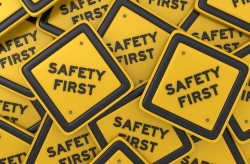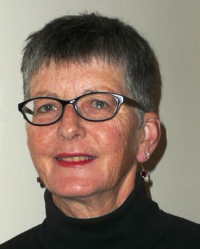Cold indifference – new normal for community services?
December 6th, 2019 | Published in Guest posts, Power & Politics
Guest blogger Dr Lorraine Harrison…I’ve seen a lot in my thirty plus years as a social worker, and have some scars to show for it. Much of my psychological injury has come from cold indifference within organisations. Current funding models entangle workers, and clients, in number-crunching systems that are inadequate and damaging for all concerned.

2013 PhD thesis on worker stress
I completed my PhD on workers’ experience of job stress in the community sector in 2013. Workers described clear evidence of psychological damage from within their organisations.
 I called my thesis “Feeling the Heat” because the problem of worker stress is too often seen as belonging to the worker, who should “get out of the kitchen if they can’t stand the heat”. Once the worker becomes ‘the problem’, there’s no need to consider workplace culture, workloads, or power imbalances between workers and their organisations.
I called my thesis “Feeling the Heat” because the problem of worker stress is too often seen as belonging to the worker, who should “get out of the kitchen if they can’t stand the heat”. Once the worker becomes ‘the problem’, there’s no need to consider workplace culture, workloads, or power imbalances between workers and their organisations.
Nothing to see here, in other words…Onto the next funding proposal!
Recent experience of cold indifference
I’m calling this article “Cold indifference” because that’s how the response from the organisation felt in my latest job. It also reflects the view I’ve formed over recent years of the general response to workers in the face of increasing pressures to do more and more with less and less in terms of time, resources, and support.
My latest role was in a trial service in an area related to family violence. None of the relevant protocols aimed at keeping clients and workers physically and psychologically safe were in place. Nor was the organisation interested in my views, as the worker on the ground, about what was feasible in terms of workload or what was needed to protect the safety of all involved.
I felt like the lonely Sherpa, who climbs up the treacherous mountain to single-handedly help the injured down to base camp, only to go straight back up and do it all again.
For the clients’ sake
Working with the clients taught me a lot, and I developed ways of making the best of the situation for all involved. I read extensively on my days off, reflected on my practice, and consulted outside agencies and their workers.
I worked alongside the clients to make them as safe as possible given the horrific circumstances they were in. Most were facing physical, financial and/or psychological abuse. Some were under very serious physical threat. Some were at risk of losing their homes. Most had additional issues. They came from many cultural communities.
What about support for the worker?
 Was I given adequate debriefing, regular clinical supervision, and peer support? Was I part of a team? Was my wellbeing as a worker of interest?
Was I given adequate debriefing, regular clinical supervision, and peer support? Was I part of a team? Was my wellbeing as a worker of interest?
Sadly, and emphatically, no, no, and no. And yet, these provisions are part of the protocols developed by Domestic Violence Victoria in response to the occupational health and safety requirements of organisations.
I was a lone worker. My manager was located elsewhere and was not from the team that included other family violence workers. I therefore also had limited opportunities for informal debriefing.
Nine months into my role, and after many requests from me, the organisation did agree to provide clinical supervision every three weeks.
It was too little, too late.
Until the end I believe I demonstrated good faith, cared for the clients, and wanted the program to succeed.
Safety for workers and clients
I was pressured from the outset to meet clients in their homes – the same homes where many of the perpetrators of violence lived.
 This practice was unsafe for me and for the client.
This practice was unsafe for me and for the client.
“Some jobs present such a high level of risk that workers should not be required to do the work alone,” according to Work Safe Victoria. “Occupations where violence has occurred before, or where no information is available fall into this category.”
The longer I was in the role, the more I questioned the expectation of home visits. My manager responded that “maybe you’re not cut out for the job”. This did work to silence me for a while, despite my training, qualifications, and decades of experience.
Such is the power of victim-blaming, served with a side of cold indifference!
The apparent lack of concern for safety, mine and clients’, was remarkable. Fortunately for me, I’ve been actively involved in occupational health and safety provisions in many workplaces as a staff representative and/or union delegate. I drew on that experience to help me manage the situation by ignoring the pressure to do home visits and, instead, met clients in the workplace. It made me think, though, how much more harmful these expectations could be for less experienced workers.
Work Safe Victoria also recommends that organisations should consider providing “communication equipment to workers that is tested and maintained (e.g. duress alarms)”.
I was not offered a duress alarm. Furthermore I discovered, not long before I left, that other workers, with whom I shared an office, were directed to take duress alarms to all home visits. Why I was not given a duress alarm? I don’t know, but this failure of the organisation has left me angry and extremely disappointed.
Unrealistic expectations
My job was two days a week. New referrals came in regularly and I was supposed to make contact within five working days. The only way to achieve this would have been to close off clients who still needed support.
The number of sessions should be limited, I was told. I should refer clients on, I was also told. To where, however, was never clear. I was questioned about the length of time I spent with clients, with no recognition of their distress or risk of ongoing abuse and violence.
however, was never clear. I was questioned about the length of time I spent with clients, with no recognition of their distress or risk of ongoing abuse and violence.
“Not all your clients are in crisis,” I was told. And, “we are all busy”.
I felt undermined professionally, and the reality of the work was unacknowledged. The number of clients who passed through the service seemed more important than whether they were helped. Again that sense of cold indifference prevailed.
My (unwelcome) evaluation of the role
I wrote about my “Sherpa experience”, and gave a copy to my manager, including suggestions for making the work more useful for clients and achievable for workers. I noted that it was an important time for evaluation as ongoing funding of the program was under review.
My ideas fell on deaf ears!
The extension of the funding appeared to be all that mattered. Organisations want funding, and funding bodies want programs that appear, on the numbers, to be ‘successful’. This accountancy model enables programs to continue on the ground that are inadequate for clients and damaging for workers.
In the end I felt I was up against my managers, human resource managers, and the CEO. They ‘suggested’ I leave early but gave two contradictory reasons. The inconsistencies were never clarified, and the approach then shifted to ‘concern’ for me. I felt they had closed ranks and were shutting me down without due process.
Systemic context of community organisations
Funding shortfalls and competitive tendering create pressure on agencies to extract the inhuman from ‘human resources’, while sidelining the impact of under-resourced programs on workers and clients.
Staff are poorly placed to speak out. Those with mortgages to pay and families to feed know they are dispensable. There are plenty more workers looking for positions.
Prevailing industrial conditions of casual work, contracts, and diminishing union membership create the conditions for compliant workers. Even permanent workers are hamstrung by the possibility of needing referees in the future.
The balance of power lies with the employers!
Parallel processes
I would describe my latest workplace as reflecting parallel processes, that interplay between clients, staff and organisations that can “replicate the very experiences that have proven to be so toxic for the people we are supposed to treat”.
My experiences that paralleled those of clients included lack of power, isolation, my concerns being trivialised, and my professional judgment being undermined. I was turned into ‘the problem’ and, in the final stages, given contradictory and evasive responses.
My managers, presumably, have ‘moved on’. On the other hand, I am left confused, angry, and psychologically damaged.
Does my experience of cold indifference resonate?
If you have a similar story, I would value hearing it. Does my description of cold indifference resonate for you? Are there other ways you would describe your experience in community organisations? What strategies have you used to survive? What could be done to improve the experience of workers in the community sector? What collective action might be possible?
If you’ve read this far, I would like to encourage you to join your union if you’re not already a member. Unions are only as powerful as their membership. Collectivising to promote supportive workplaces and to challenge cold indifference must surely be more constructive than perpetuating the status quo.

You can contact me (Lorraine Harrison) by leaving a comment below, or by email at justlorraineharrison@gmail.com

I’ve been a social worker for more than thirty years in areas including public housing, sexual assault, family carers’ services, disability, aged care, and local government. I completed a four-year Bachelor of Social Work, a Masters in Clinical Social Work, and a PhD on worker stress. I believe in the equal importance of clients and workers, and have been active as a union representative and in health and safety roles…Lorraine Harrison
……………………………………………………….
Scroll down for COMMENTS
First-time comments have to be moderated. That process is normally completed within 24 hours. With guest posts, as this one of Lorraine’s, a response to your comment can take extra time, as the to-and-fro is a bit messy. Do check back.
…………………………………………….
NOTE: If you like this post, you might find others of interest in the category on Bully power. Additionally, the Favorites category brings together posts from across all main categories and provides a sense of the scope of the website and blog…Joan Beckwith



Joan, thank you for your honesty and transparency.
As both a survivor of tortuous physical, physiological, and sexual abuse and then being trained to work in the sector, find it abhorrent to know that an expectation of home visits, alone and without a personal safety device, lay at the feet of some women who literally saved my life.
It was an obvious step for me to meet my case managers and other various support workers in a neutral place such as a coffee shop or restaurant. I would have been aghast at them coming to my home and possibly be there if he came home early. Something he was apt to do on a regular basis.
After the police finally took him away I immediately found, with the help of these same women and in one instance a man, a place of my own. In case the courts released him, a common occurrence.
I went on the very next week to enrol in college and get my diploma of community service. I wanted to pay it forward.
I can say, without a doubt, that if he came home and found someone, anyone really, but someone working to help me leave he would have exploded.
The escalation in his violence started to involve everyone involved with me.
I can’t say that you would not have been seriously harmed.
I have plates in both jaws, a fractured spine and seventeen fractures. None of which I was allowed to get medical attention for. Except the jaws, which were the final straw.
It is a very real threat and one that needs to be addressed in the sector.
Ironically, before I met Prince Charming, I was a senior ordained minister in a large church in Brisbane. In fact I was the only woman who sat on the oversight of both national and international churches and ministries.
When I divorced my first husband, who was a pastor, I also left the church and the misogynistic ethos behind. Call it a crisis of faith if you will.
Not one call or visit from my fellow oversight or anybody actually , followed.
It was a given that “ I had it all together, confident preacher and teacher and my family was strong”. I apparently didn’t need to be ministered to, even though the weight of thousands of souls was heavy on us all.
Interestingly, our councillors were taught to address the issue of domestic violence, in numerous couples in the church , in a conciliatory manner, ie; “the bible says , it is by the grace and submissiveness of the wife, an erring husband will see God’s way and be brought back to the church!”.
You can imagine the horror I felt, after experiencing D/V in the next relationship I had. I guess they felt that cold and alone feeling and I would have given anything to go back in time and change that hugely erroneous teaching.
I wish you well Joan. I hope you find healing and then get righteously angry and speak out. It would be a fair point, at this point, to mention my preaching about materialism and misogyny and being very frank about it, made my decision to up and leave a necessary rather than lifestyle one I had my bachelor of theology and was passionate about finding and revealing truth.
Maybe that’s why we get burned ?
I know now that my ministry was something of a beachhead for other women who followed,
Your article and book is screaming for changes in the sector and they will come. It takes strength, character and several bottles of a good red to withstand what amounts to a very poor job by people up the line. I’m not sure about the wine, but by all accounts you have buckets full of the preceding necessities.
I wish you the very best. Change, good change will come. Just took someone like you to begin, what I imagine, will be a rather long and bitter negotiation,
Be well and get a personal alarm! Stay safe.
Dear Lynette,
What an amazingly sadly beautiful comment to wake up to this AM as I think about the coronavirus lockdown and all its implications and feel a particularly urgent concern for those in DV situations.
Thank you for taking the time and trouble to tell some of your own story, which itself sounds like it calls for a book, or at least an article or few. If you feel like working with me to shape what you have already written into a guest post for the website, do get back in touch by email at 2020socialjustice@gmail.com.
I should also note that the post you responded to is a guest post by Lorraine Harrison (see her bio at the end of the post). I will forward your comment to her and she may also get back with her own response.
This AM I have also posted an article on the Facebook page, linked to this website, about the situation for prisoners and those in immigration detention at this time of lockdown. I know that some of those in prison would be perpetrators of serious assault against intimate partners and other horrendous crimes, but that does not to my mind overrule their right to equal safety at this time. You might have an opinion about this? If so, do feel free to express here or on the Facebook page …Best wishes, Joan Beckwith.
Lynette, Lorraine sent the following in response to your comment:
Hi Lynnette,
I thought I would also reply to your comments.
Thank you for your courage in writing down some of your horrific experiences, and it was good to read that you did get help and support way down the track when escaping was in progress for you.
I appreciate reading your insight about not putting workers on the front line into family violence lounge rooms as this does not help the women or the worker stay safe. My work situation was an unusual one and as I have referenced in my articles there are clear health and safety guidelines written by the Family Violence sector as well as Worksafe Victoria.
I wish you all the best Lynnette
Lorraine Harrison
Thanks for a great article Lorraine. It seems to be the way to survive in the sector is to ‘care less’. How ironic. The problem is, it’s not in our nature to care less. We chose this field because we care a lot. So where does this leave us? I really don’t know.
Thanks for your comment, Christine. Lorraine sent the following in response:
“Hi Christine,
Thank you for your positive feedback.
I guess in terms of ‘Where does this leave us’, we need to collectivise, discuss and brainstorm ideas and options e.g. small action – create fliers for putting into our work places about positive workplaces cultures etc
Cheers Lorraine Harrison”
Thank you Lorraine,
A great article and I agree.
Social Workers have been underpaid, treated poorly and expected to do the impossible. In quite a number of locum positions I saw the results of violence, abuse and stress on social workers. That’s why the locum positions opened up. I experienced some apallingly incompetent managers. Some from other fields, with no social work background at all managing social workers and psychologists.
Some managers are punishing, of clients and staff. Some were racist, some were there to earn money, to make a pretense of caring and advocating for clients.
I agree about joining a union, then being active in the union. Making it strong. It will take a revolution to ensure that community workers are valued, protected and safe. All power to you.
Thanks for your comment, Beth. Lorraine sent the following response:
“Ditto to everything you have shared Beth.
I too have done a lot of locum case management in disability and aged care over the last couple of years and have also been appalled. I have seen the community sector, in general, go backwards in frequent bad behaviours exhibited towards its workforce. I had hoped there would be an improvement in behaviour towards workers since I completed my thesis in 2013 (‘Feeling the heat: workers’ experiences of job stress in the Victorian Community Services Sector’) but this is not the case. Neo liberalism/economic rationalism is still pulling the strings. I wonder when those strings will be cut.
Many thanks and appreciation, Lorraine.”
I left the city where l did my youth work study of 3 years to return to my hometown some 75 kms away. I accepted a job where l did my final placement. I was also dealing with the apparent suicide of my oldest friend and incest in my family at the time, but naively thought l could deal with it as l was a ‘jock’ sporting wise and l had numerous other hobbies and outlets. All of a sudden l had gone from metropolitan inclusivity to regional outcast. I was then involved in a lot of Melbourne’s initial sexual assault training in which l had really felt like l was a pioneer. I felt crap inside but a passionate outcast, and some of the agencies l was working with really were cold and my immediate supervisor was very judgmental and went out of his way to embarrass me at a staff party by insinuating that l wasn’t able to freely speak my mind. I did have a lot going on though. Needless to say as an outreach youth worker with personal issues l burned out quickly. This was 30 years ago. I have made several attempts to up skill since and spoken to ex colleagues. I have even worked in.parallel community sections of government and NGO’s but l have completely given up hope now even though l have lived an incredible life that l could document freely the twists and turns of family collusion and advocating for prisoners in jail while working as a prison guard. It seems that if you have a reputation, people expect you to live up to that and treat you accordingly. I know community services workers wages are poor compared to some public servants, but l partly blame my treatment as a 25 to 30 years old hurt person as a pawn in a game of funding shenanigans and it has taken me 32 years to have enough armour around me to be ok with working meaningless jobs for little money and stimulus.
Thanks for your comment, Boris. Lorraine sent the following response:
“An extensive and challenging life journey, Boris. I do wonder how many incredibly experienced workers like you leave the health and community sector and never return. A waste of trained, committed and passionate workers gone after being psychologically and physically drained and damaged.
We do need to rise up against the brutality and toxicity within work places in our ‘caring and sharing’ sector” (Lorraine Harrison).
Great article. Thank you speaking out so articulately Lorraine. The clients were very lucky to have such a dedicated support worker while you were there. It’s such a shame that your work wasn’t valued by the employer. All the best to you in future.
Thanks for your comment, Carol. Lorraine sent the following response:
“It’s a shame that the name of the game is getting bums on seats and moving clients on quickly. This sets up clients to bounce from one service to another and possibly back to the original service. As for workers who try to provide a thorough, decent and productive role alongside clients they soon get told to ‘play the game and move ’em on’ or move on yourself’. This over-focus on economic rationalism is counterproductive” (Lorraine Harrison).